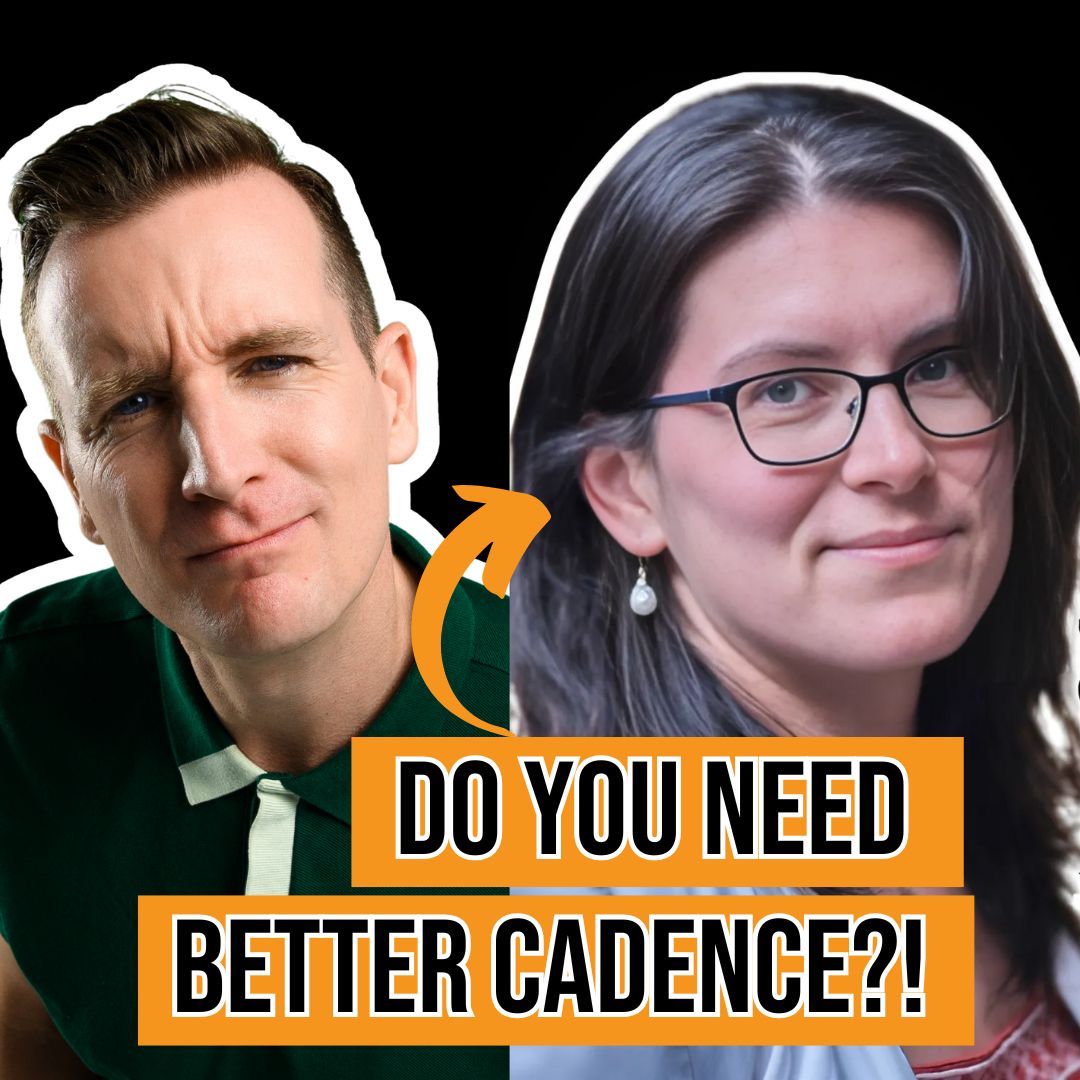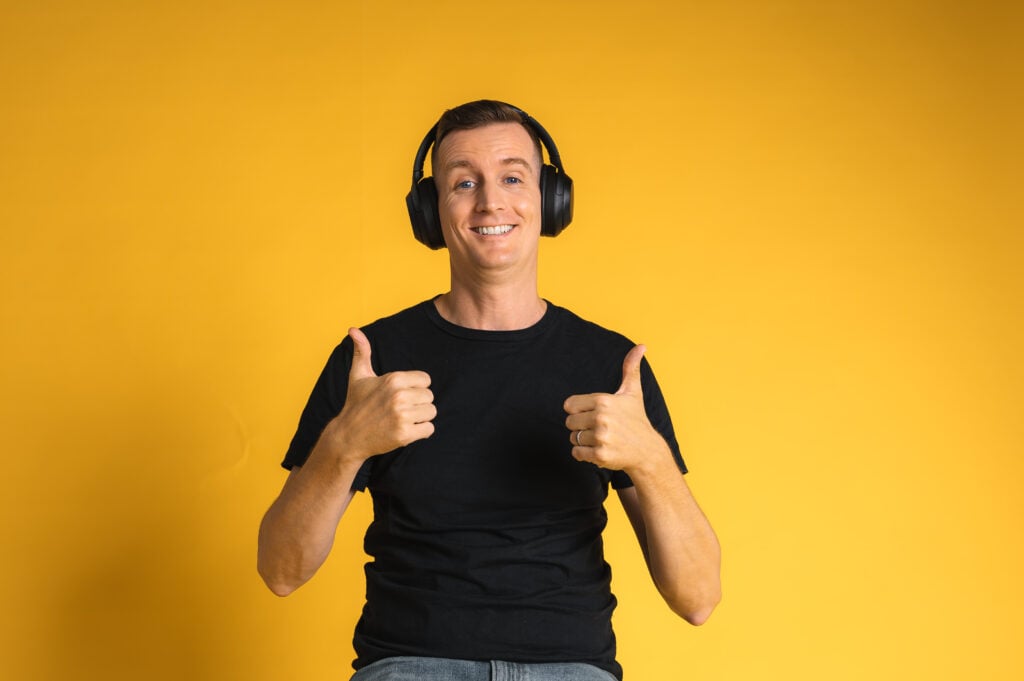My guest is Lumi Miron, a business coach and new podcaster, to audit her show, Second Acts. Lumi had only released one episode so far, but she came in with a clear mission and a willingness to learn, which is honestly the best place to start.
We talked through everything from equipment and editing to branding and audience connection. Like many first-time podcasters, Lumi had some great instincts—but also a few common mistakes holding her back. The good news? Most of these are easy fixes once you know what to look for.
Starting Where You Are
When I spoke to Lumi Miron, what stood out right away was her honesty. She didn’t try to pretend she had it all figured out. She told me, “I just watched some YouTube videos, read some articles, and went with it.” And honestly, that’s how most podcasters begin.
Lumi had no background in audio or podcasting. She just felt like she had something valuable to share, and she hit record. No fancy gear. No production team. Just an idea and the courage to start.
I’ve seen so many people get stuck at the starting line, waiting for everything to be perfect. The perfect mic, the perfect topic, the perfect setup. But if there’s one thing I’ve learned—especially from helping over 70 podcasters—it’s this: done is better than perfect.
Starting messy is normal. I did the same back in 2019. One mic, one room, no clue what I was doing. But that’s how we learn. Lumi’s a great reminder that you don’t need to wait. You just need to start. Everything else can improve later.
Know Your Niche, Know Your Listener
One thing Lumi had really nailed was her niche. Her podcast, Second Acts, is for business founders who’ve failed—and are trying to bounce back. It’s about sharing the messy parts of entrepreneurship that most people avoid. Not the highlight reel, but the hard lessons. She calls them the “golden nuggets”—the things you only learn through failure.
That kind of clarity is rare for a new podcaster. And it’s powerful.
Podcasting isn’t just about recording your thoughts. It’s about knowing who you’re talking to and why they should care. When you know that, everything gets easier—your content, your titles, even your guest choices.
If you’re still trying to figure that out, ask yourself:
- Who do I want to help or connect with?
- What problem or question am I helping them with?
- What do I want them to take away after each episode?
Lumi knows her audience—founders who feel like they’re alone in failure—and she wants to remind them they’re not. That’s a strong mission. And it gives her podcast purpose beyond just having a mic and hitting record.
The Mic Mistake Everyone Makes
Lumi did what most new podcasters do—she bought a USB condenser mic because blogs and YouTube videos said it was “great for beginners.” I’ve been there. Most of us have. These mics look professional and promise plug-and-play quality. But the truth is, they’re not made for home podcasting.
Condenser mics are designed to pick up everything—your voice, the echo in the room, your kids in the next room, even your dog walking past. Unless you’re recording in a soundproof studio, they’ll make your podcast sound worse, not better.
That’s why I recommend something else: a dynamic mic, a boom arm, and Studio Sound in Descript. A dynamic mic only picks up what’s right in front of it—your voice. It cuts out most background noise and gives you a cleaner, more professional sound.
The best part? You don’t need to spend a lot. There are great dynamic mics under $50 that will completely level up your audio. (If you want my list, just reach out.)
The bigger lesson here: Just because something is popular on Amazon or looks good in a blog post doesn’t mean it’s right for your setup. Lumi had the receipt—literally—and I told her to return that mic and get something that actually works for podcasting at home.
You Are the Guide—Not Just the Host
Another common mistake I noticed in Lumi’s episode: she forgot to introduce herself. Not just her name, but why she’s the one hosting this show.
This happens a lot, especially with new podcasters. We get excited to introduce the guest, but we skip over the most important person in the room—you. Your audience needs to know who you are, what you do, and why you’re worth listening to. It’s not about ego—it’s about trust.
I told Lumi to think of herself as the guide, not just the host. Her job isn’t just to ask questions—it’s to lead the listener through the story and connect the dots. That starts with a clear, confident introduction:
- Who you are
- What the show is about
- What the listener will learn
- Who the guest is and why they matter
Once Lumi understood that, it clicked. She already has a powerful story and a strong mission—she just needed to step into that role more fully. Every podcaster does.
Polish the Package – Artwork and Title
Lumi had done what many first-time podcasters do—she designed her own podcast artwork. It had the basics: the title, some keywords, and (of course) a mic icon. But it was too busy. Too much text, and not enough personality.
I gave her some simple tips:
- Remove the word “podcast”—people already know it’s a podcast.
- Ditch the mic icon—it’s overused and doesn’t add value.
- Add a photo of yourself—people connect with faces.
- Use fewer words—clean, bold titles are easier to read.
Most people scroll through podcasts on their phones, so space is tight. If they can’t read your title or artwork in two seconds, they’ll scroll past.
We also looked at episode titles. Her first episode started with “Ep1 – Second Acts” which just repeats what’s already obvious. I told her to move the actual topic—When Life Gives You Lemons—to the front and make it keyword-friendly. That way, more people will find it when they search.
Bonus tip: Add a short tagline to your podcast title for better discoverability. Something like Second Acts: Lessons from Business Setbacks gives more context and can help with SEO, too.
Besides, writing show notes in third person makes them feel generic. Switching to first person creates a stronger voice and connection.
Conclusion
Talking with Lumi reminded me how powerful it is to simply start—even if it’s messy. Podcasting is a skill, and just like any skill, you get better by doing.
She’s already ahead of most new podcasters because she knows her audience, has a clear message, and isn’t afraid to ask for help. With a few upgrades—better gear, clearer structure, and stronger branding—Second Acts has real potential to grow.


